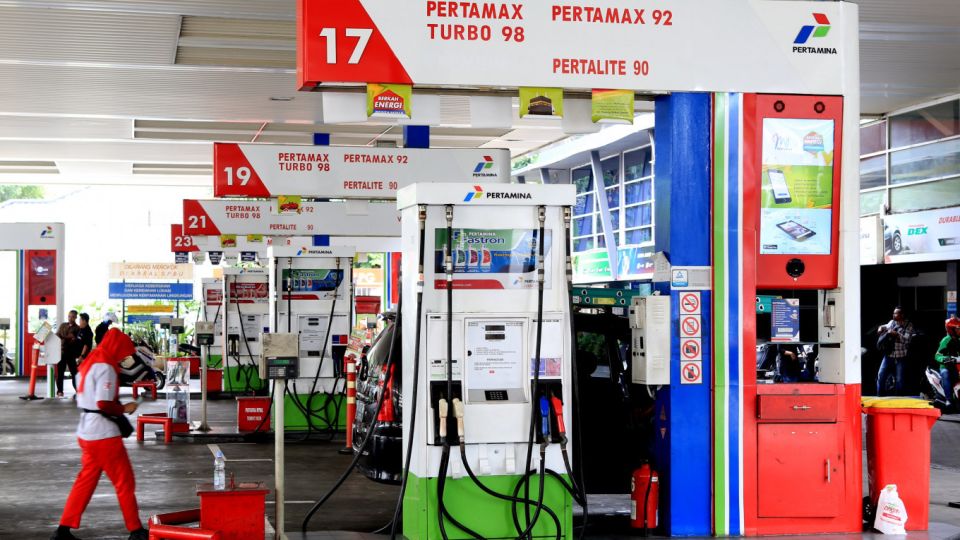September 2, 2022
JAKARTA – The government is still considering the social and economic risks of cutting fuel subsidies and calculating the levels of fuel price rises and their impact on the economy in general. It has also allocated Rp 24.17 trillion (US$16.1 billion) for cash transfers under the social safety net programs to shield the most vulnerable families from the impact of the general price increase.
Certainly, Indonesia’s headline inflation year-on-year, which declined to 4.46 percent in August from 4.94 percent in July, may rise to 6 or even 7 percent by the end of the year. But that is not the end of the world and is still below the 8-10 percent inflation range in many advanced economies.
Despite the additional social assistance, we still expect some degree of social turbulence and political noise. But given the multiple benefits of fuel reform for the long-term foundations of the economy, the government and members of the House of Representatives should work together to build public support for the painful measure.
But whatever other measures the government is preparing now, they will simply be contingency measures for the short term, which will not be able to address the long-term vulnerability of the economy to international oil price volatility.
We need a well-designed, permanent fuel reform policy that will gradually bring domestic fuel prices closer to their actual production costs, say within five years. Such a permanent reform, if consistently implemented, would improve the energy efficiency of the economy, strengthen fiscal balance, reduce carbon emissions and enhance the transition to renewable energy.
We have lived too long with artificially low inflation and our businesses have been too complacent with energy subsidies, which are not sustainable in the long term, especially in view of the escalating threats of climate change.
President Joko “Jokowi” Widodo, like his predecessors, still subscribes to the wrong perception that maintaining generous fuel subsidies will help maintain the purchasing power of the people, while all surveys have concluded that the bulk of the fuel subsidies have been enjoyed by middle- and higher-income consumers.
Even though we have been a net oil importer since 2004 and depend on imports for 60 percent of our fuel consumption, and international oil prices are highly volatile, the government has been too lax for not consistently implementing a policy that gradually phases out fuel subsidies through a managed-floating price mechanism.
Consequently, the government has always been caught up in a panic, moving from one poorly designed emergency measure to another poor contingency policy to cope with the price volatility.
As nobody can predict the direction of oil prices for more than one year and the oil market is strongly influenced by economic and geo-political factors it is now high time for the government to institutionalize a permanent fuel policy that will gradually bring domestic fuel prices in line with international oil prices.
The Constitution does not allow the government to unleash market forces to determine local fuel prices. That is why the system should be designed to be a managed float not a free-market float system because the mechanism is still tied to fixed price ceilings whereby the government can intervene in retail fuel prices again if oil prices increase dramatically.
Under this regime, the amount of fuel subsidy per liter will not fluctuate freely along with the oil market prices or rupiah exchange rate quotations because the government still set the price ceiling and floor.
This managed floating system will spare the government the wasteful political bickering with the House every time international oil prices rise sharply and will free the government from the hostage of the wildly volatile international oil market.
As the range of the price ceiling and floor set for the managed floating is designed to be close to the market prices, the policy also should be effective in gradually phasing out fuel subsidies.
Such energy subsidy reform should be a good response to the vulnerability of the economy to changes in international oil prices and the consumer behavior that has prevailed since the 1970s, which have encouraged distorted consumption.
The subsidizing of fuel has always been a huge burden on our budget. This year it could reach Rp 700 trillion or 30 percent of total spending if the subsidized fuel prices are not raised.
The overall economy has been widely exposed to vulnerabilities because of the imports, but so has public expenditure, because if the government wants to guarantee a certain price, it never knows how much to allocate for subsidies at the end of each year. The economy has been left at the mercy of what happens on the international market.
In fact, since there has never been a permanent policy to gradually phase out fuel subsidies and the people have become accustomed to subsidized fuels, the consumers who consume more fuel stand to benefit more, which undermines the objective of having subsidies in the first place—to protect the poorest and most vulnerable families.
Certainly, it would be a big challenge now to introduce a new culture where domestic prices more closely relate to the international market. The first challenge is the mindset of the sitting government, which could risk a political price for such a painful measure. The second is the likely resistance from the general public who have become too comfortable with the subsidy.
President Jokowi is currently in his second and final term and does not face any political pressure to maintain his popularity with fiscal measures that will damage the long-term foundations of the economy.
He could choose to be nice to the people by allowing the fuel subsidies to balloon but this would plant a devastating “fiscal time bomb” for the new government in 2024.
Or Jokowi could leave behind a good legacy in terms of improved energy efficiency if he could begin permanent fuel reform within the next 18 months.
The writer is a senior editor of The Jakarta Post.


